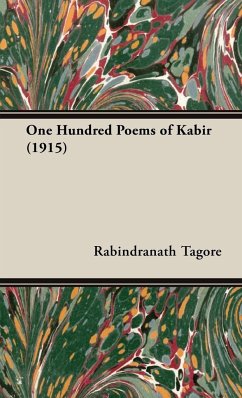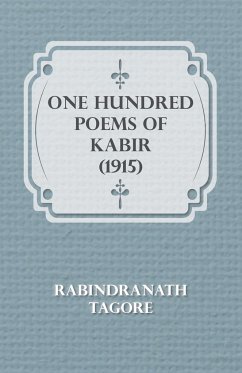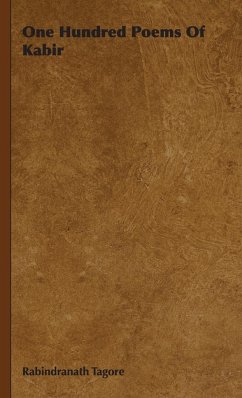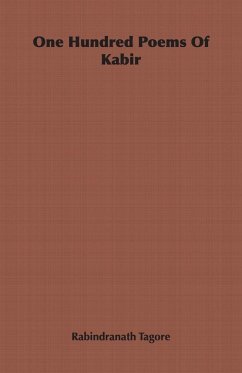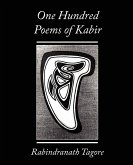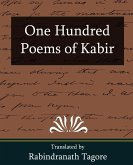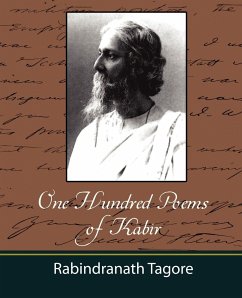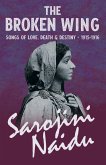This vintage book contains a collection of one hundred poems by the fifteenth-century Indian poet Kabir, translated in 1915 by Rabindranath Tagore. These fantastic poems explore Hindu and Sufi philosophies and are highly recommended for all poetry lovers. Kabir's work significantly influenced Hinsuism's Bhakti movement and his writings are prominent in the Sikh scripture Adi Granth. Contents include: "mo ko kahân dhûnro bande", "Santan jât na pûcho nirguniyân", "sâdho bhâî, jîval hî karo âs'â", "bâgo nâ jâ re nâ jâ", "avadhû, mâyâ tajî na jây", "candâ jhalkai yahi ghat mâhîn", "Sâdho, Brahm alakh lakhâyâ", "is ghat antar bâg bagîce", "aisâ lo nahîn taisâ lo", "tohi mori lagan lagâye re phakîr wâ". Many vintage books such as this are increasingly scarce and expensive. We are republishing this volume now in an affordable, modern edition complete with a specially commissioned new introduction.

